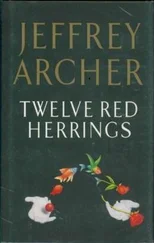Alan Bradley - A Red Herring Without Mustard - A Flavia de Luce Novel
Здесь есть возможность читать онлайн «Alan Bradley - A Red Herring Without Mustard - A Flavia de Luce Novel» весь текст электронной книги совершенно бесплатно (целиком полную версию без сокращений). В некоторых случаях можно слушать аудио, скачать через торрент в формате fb2 и присутствует краткое содержание. Жанр: Старинная литература, на русском языке. Описание произведения, (предисловие) а так же отзывы посетителей доступны на портале библиотеки ЛибКат.
- Название:A Red Herring Without Mustard: A Flavia de Luce Novel
- Автор:
- Жанр:
- Год:неизвестен
- ISBN:нет данных
- Рейтинг книги:4 / 5. Голосов: 1
-
Избранное:Добавить в избранное
- Отзывы:
-
Ваша оценка:
- 80
- 1
- 2
- 3
- 4
- 5
A Red Herring Without Mustard: A Flavia de Luce Novel: краткое содержание, описание и аннотация
Предлагаем к чтению аннотацию, описание, краткое содержание или предисловие (зависит от того, что написал сам автор книги «A Red Herring Without Mustard: A Flavia de Luce Novel»). Если вы не нашли необходимую информацию о книге — напишите в комментариях, мы постараемся отыскать её.
A Red Herring Without Mustard: A Flavia de Luce Novel — читать онлайн бесплатно полную книгу (весь текст) целиком
Ниже представлен текст книги, разбитый по страницам. Система сохранения места последней прочитанной страницы, позволяет с удобством читать онлайн бесплатно книгу «A Red Herring Without Mustard: A Flavia de Luce Novel», без необходимости каждый раз заново искать на чём Вы остановились. Поставьте закладку, и сможете в любой момент перейти на страницу, на которой закончили чтение.
Интервал:
Закладка:
“Poseidon? He was a cad,” she said. “A bully and a cad. He was also a womanizer.”
“How can a god be a cad?”
Daffy ignored my question. “He was what we would call nowadays the patron saint of sailors, and with jolly good reason.”
“Which means?”
“That he was no better than he ought to be. Now run along.”
Ordinarily I might have taken umbrage at being dismissed so high-handedly (I love that word, “umbrage”—it’s in David Copperfield , where David’s aunt, Betsey Trotwood, takes umbrage at his being born), but I didn’t—instead, I felt rather an odd sense of gratitude towards my sister.
“Thanks, Daff!” I said. “I knew I could count on you.”
This was shoveling it on, but I was honestly pleased. And so, I think, was Daffy. As she picked up her book, I saw that the corners of her mouth were turned up by about the thickness of one of its pages.
I was half expecting to find Porcelain in my room, but of course she was gone. I had almost forgotten that she’d accused me of attempted murder.
I’d begin with her.
PORCELAIN (I wrote in my notebook)—Can’t possibly be her grandmother’s attacker since she was in London at the time. Or was she? I have only her word for it. But why did she feel compelled to wash out her clothing?
BROOKIE HAREWOOD—Was likely killed by the same person who attacked Fenella. Or was he? Did Brookie attack Fenella? He was on the scene at the time.
VANETTA HAREWOOD—Why would she kill her own son? She paid him to keep away from her.
URSULA ?—I don’t know her surname. She mucks about with bleaches and willow branches, and Vanetta Harewood said she was fiercely protective. Motive?
COLIN PROUT—was bullied by Brookie, but what could Colin have had against Fenella?
MRS. BULL—threatened Fenella with an ax—claimed she’d been seen in the neighborhood when the Bull baby vanished years ago.
HILDA MUIR—whoever she may be. Fenella had mentioned her name twice: once when we saw the Bull child perched in a tree in the Gully, and again when I cut the elder branches in the Palings. “Now we are all dead!” Fenella had cried. Was Hilda Muir her attacker?
MISS MOUNTJOY—was Brookie’s landlady. But why would she want to kill him? The theft of an antique plate seems hardly a sufficient reason.
I drew a line and under it wrote:
FAMILY
FATHER—very unlikely (although he once drove Fenella and Johnny Faa off the Buckshaw estate).
FEELY, DAFFY, DOGGER, and MRS. MULLET—no motive for either crime.
But wait! What about that mysterious person whose fortune Fenella had told at the church fête? What was it she had said about her?
“ A regular thundercloud, she was. ” I could almost hear her voice. “ Told her there was something buried in her past … told her it wanted digging out … wanted setting right. ”
Had Fenella seen something in the crystal ball that had sealed her fate? Although I remembered that Daffy scoffed at fortune-tellers (“Mountebanks,” she called them), not everyone shared her opinion. Hadn’t Porcelain, for instance, claimed that her own mother, Lunita, had such great gifts of second sight that the War Office had funded her crystal-gazing?
If Lunita had actually possessed such great powers, it wasn’t too great a stretch of the imagination to guess that she had inherited them from Fenella, her mother.
But wait!
If Fenella and Lunita both had the power of second sight, would it be unreasonable to assume that Porcelain, too, might be able to see beyond the present?
Was that the real reason she was afraid of me? She had admitted that she was.
Could it be that Porcelain saw things in my past that I could not see myself?
Or was it that she could see into my future?
Too many questions and not enough facts.
My shoulders were seized by a shudder, but I shook it off and went on with my notes.
THE PALINGS
There is a feeling about this place that cannot be easily explained. To my ancestor, Lucius de Luce, it must have seemed like the Great Flood when the river was diverted to form the ornamental lake. Before that time, it had been no more than a quiet, isolated grove where Nicodemus Flitch and the Hobblers came for baptisms and beanfests. Later, the Gypsies had adopted it as a stopping-place in their travels. Harriet had encouraged this but after her death, Father had forbidden it. Why?
Another solid line, under which I wrote:
FISH
(1) When I surprised Brookie in the drawing room at Buckshaw, besides alcohol, he (or his creel) reeked of fish.
(2) There was also a fishy smell in the caravan when I found Fenella beaten on the floor. By the time I discovered Porcelain sleeping there the next morning this odor had vanished—but it had been there again today, this time on the outside of the caravan. (Q): Can odors come and go? Like actors in a play?
(3) Miss Mountjoy smelled of fish, too—cod-liver oil, judging by the vast quantities of the stuff that she keeps about Willow Villa.
(4) Brookie was killed (I believe) by a lobster pick shoved up his nostril and into his brain. A lobster pick from Buckshaw. (Note: Lobster is not a fish, but a crustacean—but still …) His body was left hanging on a statue of Poseidon: the god of the sea.
(5) When we found him hanging, Brookie’s face was fish-belly white—not that that means anything other than that he had been dangling from the fountain for quite a long time. Perhaps all night. Surely whoever had done this thing had done it during the hours of darkness, when there was little chance of being seen.
There are probably people abroad on the earth at this very moment who would be tempted to joke “There’s something fishy here.”
But I am not one of them.
As any chemist worth her calcium chloride knows, it’s not just fish that smell fishy. Offhand, I could think of several substances that gave off the smell of deceased mackerel, among them propylamine.
Propylamine (which had been discovered by the great French chemist Jean-Baptiste Dumas) is the third of the series of alcohol radicals—which might sound like boring stuff indeed, until you consider this: When you take one of the alcohols and heat it with ammonia, a remarkable transformation takes place. It’s like a game of atomic musical chairs in which the hydrogen that helps form the ammonia has one or more of its chairs (atoms, actually) taken by the radicals of the alcohol. Depending upon when and where the music stops, a number of new products, called amines, may be formed.
With a bit of patience and a Bunsen burner, some truly foul odors can be generated in the laboratory. In 1889, for instance, the entire city of Freiburg, in Germany, had to be evacuated when chemists let a bit of thioacetone escape. It was said that people even miles away were sickened by the odor, and that horses fainted in the streets.
How I wish I had been there to see it!
While other substances, such as the lower aliphatic acids, can be easily manipulated to produce every smell from rancid butter to a sweaty horse, or from a rotten drain to a goat’s rugger boots, it is the lower amines—those ragged children of ammonia—that have a most unique and interesting characteristic: As I have said, they smell like rotten fish.
In fact, propylamine and trimethylamine could, without exaggeration, be given the title “The Princes of Pong,” and I knew this for a fact.
Because she has given us so many ways of producing these smelly marvels, I know that Mother Nature loves a good stink as much as I do. I thought fondly of the time I had extracted trimethylamine (for another harmless Girl Guide prank) by distilling it with soda from a full picnic basket of Stinking Goosefoot ( Chenopodium olidum ), an evil-smelling weed that grew in profusion on the Trafalgar Lawn.
Читать дальшеИнтервал:
Закладка:
Похожие книги на «A Red Herring Without Mustard: A Flavia de Luce Novel»
Представляем Вашему вниманию похожие книги на «A Red Herring Without Mustard: A Flavia de Luce Novel» списком для выбора. Мы отобрали схожую по названию и смыслу литературу в надежде предоставить читателям больше вариантов отыскать новые, интересные, ещё непрочитанные произведения.
Обсуждение, отзывы о книге «A Red Herring Without Mustard: A Flavia de Luce Novel» и просто собственные мнения читателей. Оставьте ваши комментарии, напишите, что Вы думаете о произведении, его смысле или главных героях. Укажите что конкретно понравилось, а что нет, и почему Вы так считаете.












